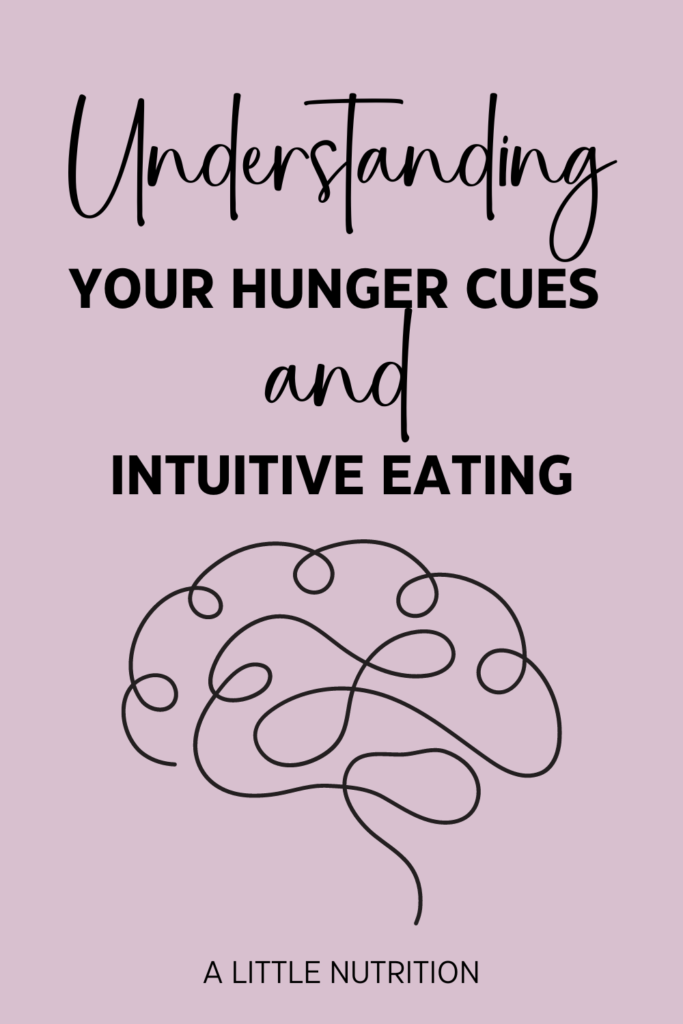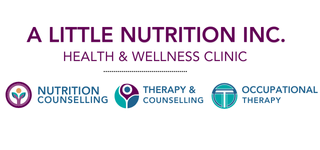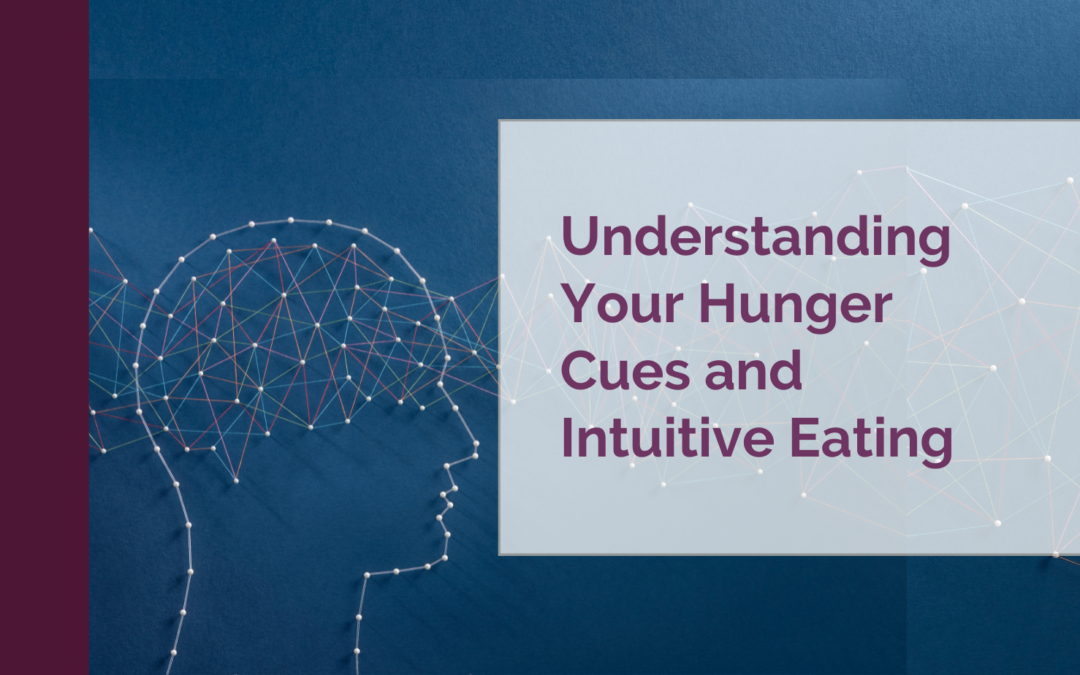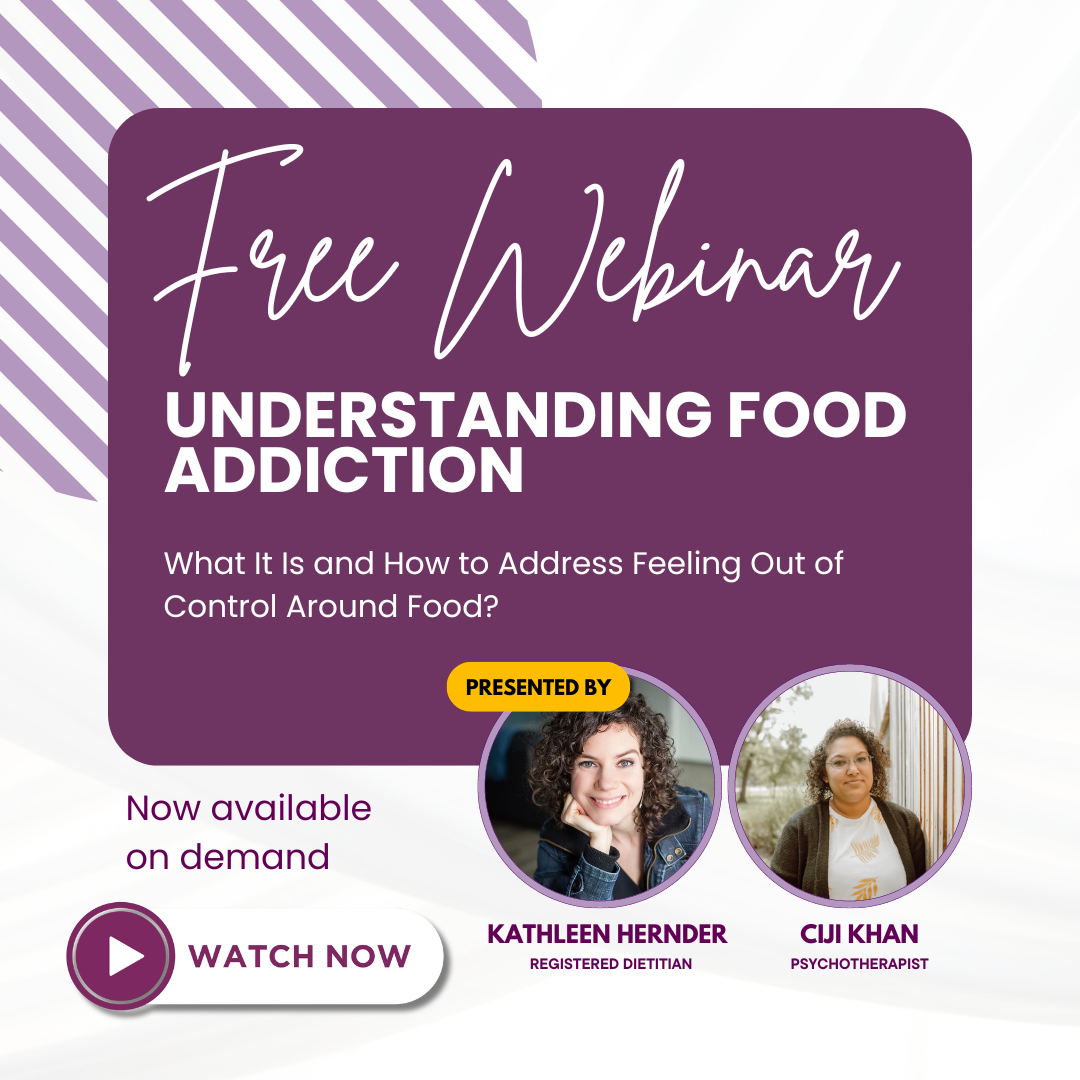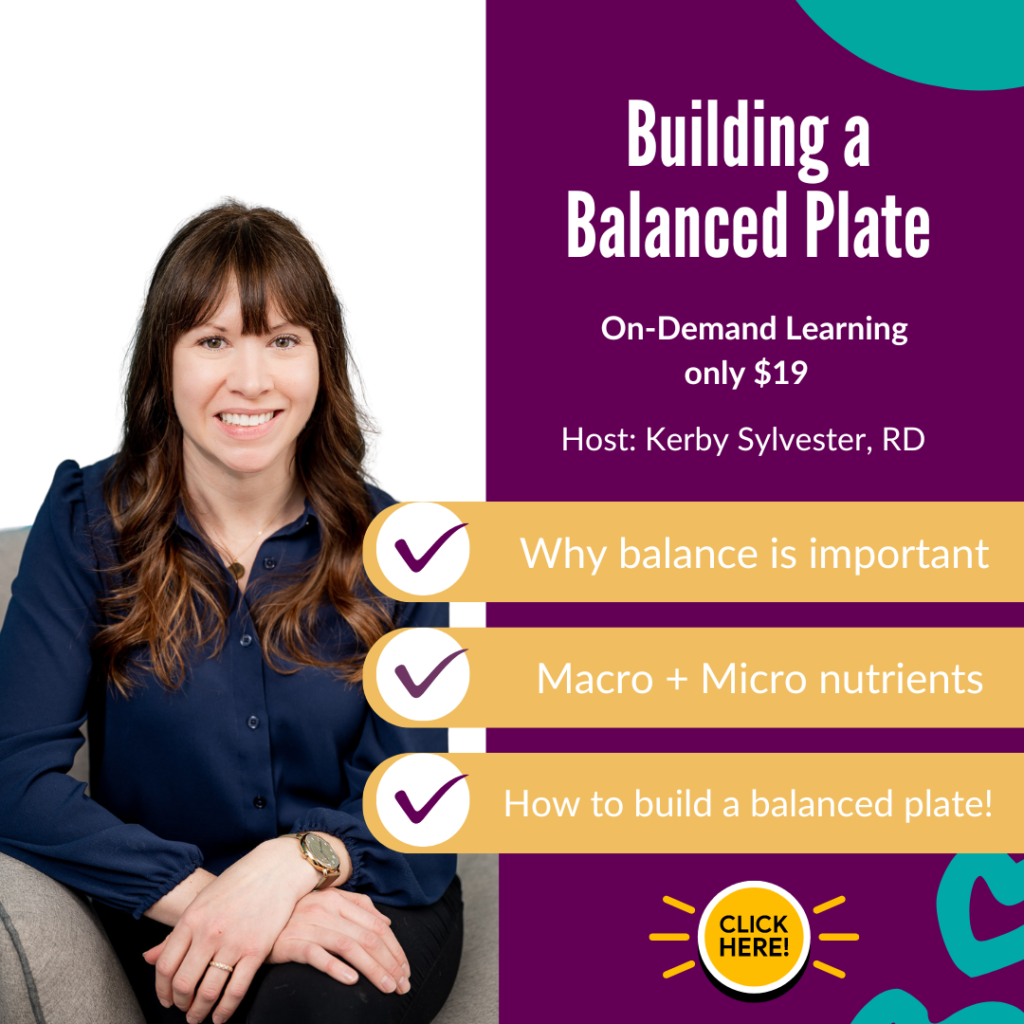Are you struggling to feel satisfied after meals? Or do you deprive yourself of what foods you enjoy? Do you often find yourself caught in a cycle of trying one diet after another yet never quite succeeding in achieving lasting health benefits? Learning about hunger cues and intuitive eating might be just what you need! One of the foundations of intuitive eating is practicing self-awareness and reconnecting with your body’s natural hunger cues by honoring them and using them to guide your decisions around food. Yes, your body can guide your eating decisions! By learning to listen and respond to our unique needs, we can create a balanced relationship with food that feels healthier and more sustainable than the typical crash diet or restrictive plan.
It’s time to stop beating yourself up about what or how much you eat and start listening to what your body truly needs. In this post, we’ll guide you through understanding your hunger cues and key foundational steps for beginning your journey toward intuitive eating.
What are Hunger and Satiety Cues, and how do they affect our eating habits?
What Are Hunger Cues?
Hunger cues are signs that indicate when we need to eat. They vary from person to person but may include irritability or a headache, stomach growling or rumbling, low energy levels, dizziness, difficulty concentrating, shakiness, increased appetite/cravings for certain foods, etc. Some people also experience psychological hunger cues such as comfort eating or wanting food due to boredom. It’s important to note that none of these signs are wrong; they tell us when our bodies need nourishment.
What Are Satiety Cues?
Satiety cues tell us when we have had enough food. In other words, satiety cues to tell us we are “full.” They indicate that we no longer need food or energy, so we don’t have to keep eating if we don’t want to. Common satiety cues include feeling full after eating a meal or snack (usually accompanied by a decrease in appetite), having trouble finishing a meal because we’re already satisfied with what we’ve eaten so far, feeling satisfied after only eating a small amount of food (even if it wasn’t very filling), etc. If you know what your hunger and satiety cues look like for yourself, then you can use them to learn how much food is right for you!
Why Pay Attention To Your Hunger And Satiety Cues?
Learn what your body needs.
Listening to your body’s natural signals helps you become more mindful of what your body needs by paying attention to the types of foods you eat and the amount. Tuning into listening to your body will help you make food choices by allowing yourself time to assess whether or not you are truly hungry before deciding what type of food would best satisfy hunger or cravings.

Assess what type of hunger you are experiencing.
When you tune into your hunger signals rather than relying on diet rules or external sources to guide eating, you can start to build awareness around the difference between physical hunger and emotional hunger. Physical hunger is the body’s natural way of signaling that it needs fuel. On the other hand, emotional hunger can arise from feelings such as stress or sadness rather than physical signals.
Become more aware of what feels good in the body:
When you recognize hunger signals and respond to them before too much time passes, you will nourish your body in a healthy and energizing way. Understanding these body signals help people navigate knowing how much to eat by knowing what it feels like to be under-satisfied (wanting more), satisfied (full/ done eating), and overconsuming (pushing past the full gauge).
Why is hunger a good thing and should not be feared as an enemy?
Hunger is like any other signal in our body. Cues such as hunger waves a red flag and tells us to take action, just like when we have the urge to go to the bathroom or get really sleepy.
Hunger stimulates the body’s metabolism by activating hormones that signal to the brain when we need food and how much energy our body requires to function optimally. The release of these hormones also increases blood sugar levels, which then triggers a release of insulin that helps regulate metabolic processes.
Hunger encourages us to be aware of what we eat and how much to eat. When we experience hunger, our bodies secrete ghrelin and other hormones that send messages to our brains so that we can find resources and fuel ourselves. Hunger is part of our natural survival mechanism, where the feeling of hunger helps us identify the energy sources we need to survive.
How to identify physical signs of hunger
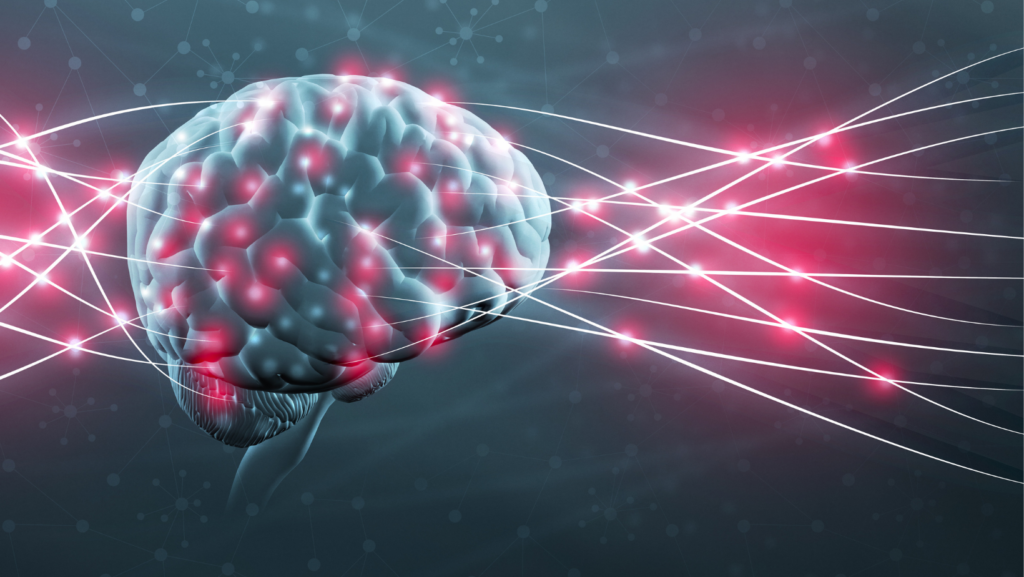
20 signs you may be physically hungry and not know it:
- Growling stomach
- Low energy levels
- Headaches
- Dizziness
- Mood swings
- Increased cravings for certain foods
- Difficulty concentrating
- Irritability or fatigue
- Uncomfortable fullness after eating a meal
- Increase in appetite
- Feeling lightheaded or faint when you haven’t eaten recently
- Shaking or trembling sensation until you eat something
- Cravings for salty, fatty, and sweet foods
- Stomach growling louder than usual after going an extended period without food
- Hormone imbalances from low blood sugar
- Stomach cramps and nausea when you haven’t had anything to eat
- Thick saliva collects in your mouth as a result of not eating enough
- Feeling emotionally drained when you go too long without eating. Leading to depression and anxiety
- A decrease in concentration, focus, and mental clarity
- Constant daydreaming or fantasizing about food.
Learn how to start connecting to your hunger cues and INTUITIVE EATING STRATEGIES.
- Pay attention to your body’s cues. Many people experience certain sensations, such as a growling stomach, fatigue, or headaches when hungry. Try to get in tune with these different hunger signals to learn what works for you.
- Take time to pause. Before reaching for food automatically, pause and check in with your feelings. Ask yourself if you are truly hungry or if something else is going on emotionally that needs attention first.
- Honor your body’s needs by listening to its signals instead of relying solely on timed meals or snacks. It is absolutely okay to “spoil” your supper by having a snack if you are honoring your body’s needs by listening to its signals. Delaying eating or relying on timed meals or snacks can often lead to overeating because you miss the cues that tell your body it is time to eat. Eating when you honestly feel hungry benefits your digestive system and helps you develop an understanding and trust in your body over time.
- Take things one step at a time; learning how to recognize true physical hunger is an ongoing practice that requires patience and compassion toward oneself along the way. If you have a long-standing history of dieting or disordered eating, It can be scary and hard to do at first, so take your time.
Practical Tips For Learning How To Eat Intuitively
- Take time between meals – Allow yourself time between meals so that you have time for the physical sensation of hunger (or lack thereof)to resurface before deciding what type of foods might best satisfy these cravings/hunger signals.
- Ensure you get enough sleep – Being well-rested increases our ability to stay connected with our bodies signals.
- Avoid labeling foods as “good” or “bad” – Doing so only serves as an additional distraction from our internal physiological cues.
- Practice mindfulness – Meditation can help us cultivate greater awareness of our senses and better connect us with our intuition
- Nourish yourself with whole foods – Eating nutritionally dense foods helps fuel our bodies while giving us ample energy throughout the day.
- Get comfortable with being uncomfortable – As humans, we often want instant gratification, but learning how to tune into our needs takes time and patience; it’s okay if it doesn’t come naturally immediately!
- Connect with others who practice intuitive eating- Surrounding ourselves with people who understand intuitive eating can provide support during challenging times.
- Try new things -Experimenting with different types of foods helps us become more connected with our taste buds and desires.
- Work on self-care practices outside of nutrition – Self-care includes activities such as getting enough sleep, exercising regularly, spending quality time outdoors, etc.; all these play a role in helping us feel balanced mentally/physically, which allows us to tune into better tune into our internal signals.
- Be patient – Lastly, it’s important not to rush through this process; take small steps each day towards connecting more deeply with yourself through mindful listening.
Challenges You Might Face When Trying To Listen to Your Hunger Cues and Intuitive eating
Learning how to recognize and respond appropriately to your body’s hunger cues takes time and practice. It can also be difficult if other external factors influence your eating habits (i.e., diet culture). The biggest challenge most people face when listening to their hunger cues is learning how much food their bodies require.
Additionally, many people find themselves unable to distinguish between physical and emotional hunger — especially if they have been dieting for an extended period — which makes tuning into one’s internal signals even more difficult.
Observing your hunger cues can be challenging if you lead a busy life and don’t slow down enough to pay attention, as well as letting too much time pass between meals, causing overeating.
Individuals who have a history of disordered eating or an eating disorder may be unable to connect with natural hunger signals, requiring them instead to rely on time-based eating for proper nourishment.
Some people who take certain medications may experience dulled senses of hunger, necessitating that they use timers as reminders to ensure they are taking regular nourishment breaks.
If you struggle to recognize your hunger signals, it is essential to practice self-compassion.
It is perfectly normal if you are not always in tune with your body’s needs. Sometimes, we all need a gentle reminder that it is okay to take care of ourselves. With the understanding that no one is perfect, self-compassion can go a long way in helping us make healthier choices for our bodies.
However, trusting yourself and respecting your body enough to pay attention to its needs is the bedrock foundation of developing healthy relationships with food.
If you feel overwhelmed as you start this journey, remember that help is always available. Please book an appointment with one of our registered dietitians or therapists today. Let’s start building a healthier relationship with food.
References for Hunger Cues and Intuitive Eating
Reference: The concept of Intuitive eating was developed by Evelyn Tribole and Elyse Resch in 1995. And is a well-established evidenced-based, mind-body health approach.
Pin Me For Later
